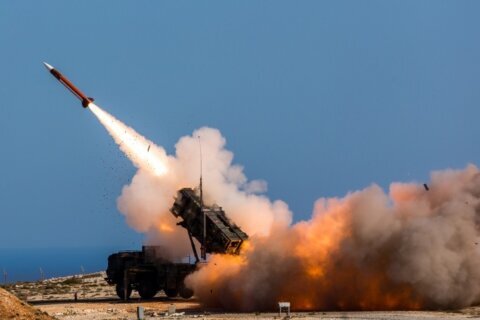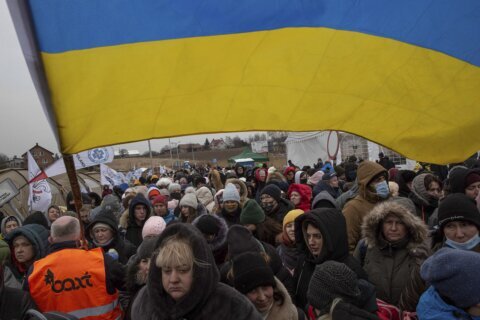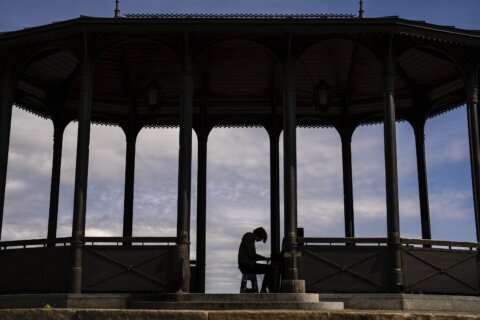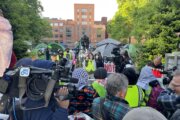BELGRADE, Serbia (AP) — The populist leaders of Serbia and Hungary observed a Serbian military exercise Saturday, an event seen as a display of lethal firepower amid the war in Ukraine and tensions in the Balkans.
Hungarian Prime Minister Viktor Orban arrived in Serbia on a previously unannounced visit. He was greeted by Serbian President Aleksandar Vucic, who said he was happy “to once again welcome a great friend of Serbia.”
“Serbian-Hungarian relations are at the highest level in the history of our countries,” Vucic wrote on Instagram.
Both leaders have maintained political and economic ties with Russia despite its aggression in Ukraine. Their relations with Moscow have been a sore spot with other European nations and with the U.S.
Although Serbia formally seeks membership in the European Union, Vucic has refused to join international sanctions against Russia or publicly condemn the war in Ukraine.
And while Hungary is a member of both the EU and NATO, Orban has criticized war-related sanctions on Moscow. His government also has said it would not arrest Russian President Vladimir Putin if he were to enter the country despite him being the subject of an international warrant for alleged war crimes in Ukraine.
Saturday’s exercise at a military airport on the outskirts of Belgrade included low passes by Russian-made MiG-29 fighter jets and Mil helicopters, as well as a display of a recently delivered Chinese anti-aircraft missile system and drones.
Serbia’s military buildup has raised concerns among some of the country’s neighbors, which fear it could threaten the fragile peace in the region that was engulfed in a bloody war in the 1990’s.
Vucic said he and Serbian military commanders were watching how the war in Ukraine is being conducted and planning future purchases of military hardware accordingly.
“Serbia has never had a stronger army in its history,” Vucic said.
The exercise came a day before local elections in a Serb-populated northern region of Kosovo, a former Serbian province that declared independence in 2008. Serbia does not recognize Kosovo as a separate country.
The elections on Sunday have triggered ethnic tensions and fears of possible incidents. Many Serbian voters planned to boycott the votes.
Copyright © 2024 The Associated Press. All rights reserved. This material may not be published, broadcast, written or redistributed.







